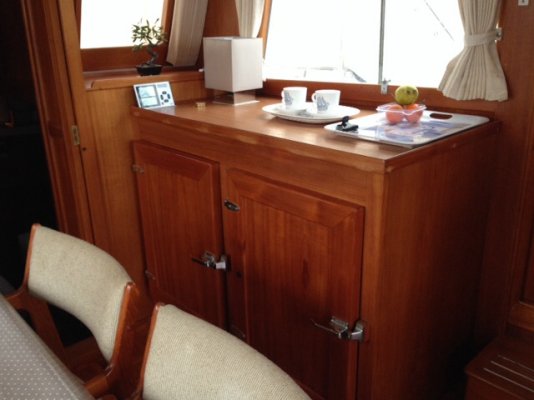mixman
Senior Member
As my Gulfstar 36 refit project begins I've got some electrical decisions to make. The boat came with a rather nice 110v half-size freezer/refrigerator combination. I'm installing an inverter/charger combo that can more than handle the load (Pure Sine Wave 2000-watt continuous, 6000-watt peak I believe). The house bank isn't finalized yet but I'm most likely going with 400 to 600 amp hours. My current boat (30' power cat) has all 12v refrigeration and we can anchor for days with 235 watts of solar and just a few hours of generator usage. The Gulfstar will have 400 watts of solar plus a wind generator for the islands. With all that said what is your opinion of running 110v refrigeration off an inverter versus replacing it with a 12v system. Friends with experience I speak with give conflicting opinions (imagine that!  .
.
Thanks!
Thanks!

